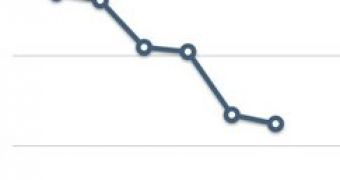The ongoing economic downturn is expected to have a great impact on the IT industry players, resulting in a consolidation of the industry as some of the smaller players will have to fold up. The collapse of small PC makers will be seen throughout the next few years, which will conduct the rest of the industry to restructure. The idea is not that big players like Hewlett-Packard, Dell and Acer would gobble up smaller hardware vendors, but that those smaller players will simply fold up shop because of the weakening demand, said Richard Shim, personal computing research manager at IDC, cited by Computerworld.
“It won't be so much about acquisition but the smaller players will just go away,” said Shim, adding that the industry could lose fewer than ten companies. “The big players are feeling the hurt as well. Right now, everybody is beating each other up in price. If some are going to die off anyway, what's the sense in buying them?”
IDC already announced that worldwide PC sales were expected to drop sharply due to the economic crisis preventing people from buying new computers. The research firm projected that PC shipments should move upward by 3.8 percent in 2009, yet added that the value of the shipments would be 5.3 percent lower. The U.S. market will be the most affected one, as shipments are expected to drop by 3 percent during the following year, while low single-digit increases should be registered in the next few years.
Another research firm, iSuppli Corp., also lowered its previous 2009 growth forecast for worldwide PC shipments by around two-thirds due to the deteriorating economy. According to the firm, worldwide PC shipments will rise by 4.3 percent in 2009, while the original projection indicated an 11.9 percent growth. For 2010, iSuppli forecasts a 7.1 growth, down from the original 9.4 percent. The research firm also announced that the semiconductor shipments were expected to decline by 2 percent to $266.6 billion in 2008, while the market would drop 10.9 percent in the fourth quarter compared to Q4 2007.
“If you change selling prices, you need to find new ways to do business, like skimping on quality or coming out with new models,” Shim explained. “A lot depends on how drastic the situation gets.”

 14 DAY TRIAL //
14 DAY TRIAL //